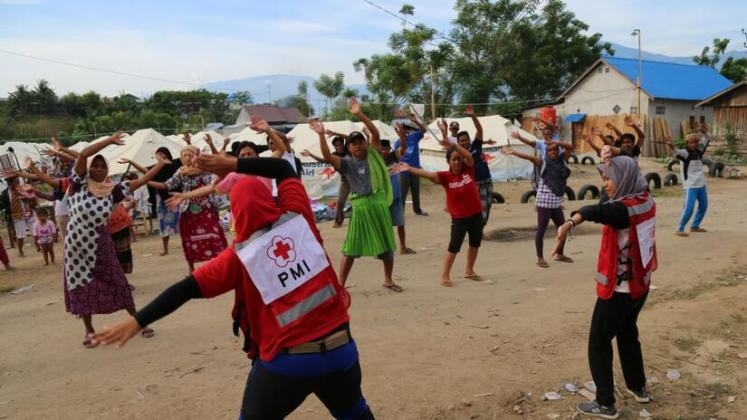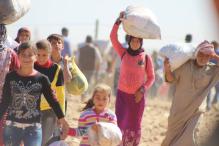Armed conflict does not only destroy infrastructure and human livelihoods; it also diminishes peoples’ freedoms to achieve what they value in life. And this is not just because of a lack of opportunities, but also because of the mental distress they endure.
If left untreated, psychological trauma tends to diminish peoples’ ability to convert resources into achievements. For example, even though a child may have access to education (resource), her ability to learn (freedom to achieve) and become educated (achievement) becomes impaired when exposed to toxic stress over a long period of time. Symptoms of post-traumatic stress disorder (PTSD), such as anxiety, depression, fatigue, trouble sleeping, or migraines reduce cognitive ability and constrain possibilities of learning. Among adults, mental health conditions are related to income penalties and difficulty in finding and keeping employment and working productively.
Mental and physical health are deeply interconnected, and consequently, one can worsen the other. This effect already starts before birth as the mother’s mental health affects the fetus, and it is especially strong among children, since their body and brain are still developing. Permanent or frequent toxic stress during this important stage of life hinders the healthy development of brain and organs. Connecting all these dots, mental distress can lead to intergenerational cycles of poor mental and physical health, reinforced by low income and diminished opportunities for education and life-long learning.
Trauma: a breeding ground for further violence
In settings of violence and armed conflict, these cycles can be difficult to break due to the seemingly never-ending spiral of psychological trauma and violence. People who have witnessed or experienced violence, are more prone to aggressive behaviour and more likely to engage in violence themselves – be it within their families or the wider community. This, combined with grief and resentment about injustices during conflict constitutes a breeding ground for further violence.
Humanitarian assistance that meets immediate needs such as food and shelter is crucial. But it should increasingly be complemented with mental health services, requiring more resources to be channelled towards that end. Several forms of psychosocial support have shown to be effective in Colombia, Rwanda, Northern Ireland, the Balkans, and elsewhere.
Potential approaches for the humanitarian sector
Apart from conventional talk and behavioural therapies, there are some innovative somatic approachesthat appear to be practical for the humanitarian sector. Increasing scientific evidence suggests that mindfulness exercises, such as yoga and meditation not only improve mental health, but also reduce aggression and thus prevent violent behaviour. Yoga releases muscle tensions caused by trauma and can therefore relieve somatic symptoms like migraines and chronic physical pain, and it is used to treat anxiety and depression. Different studies show that it has also been effective in reducing aggression and violence among delinquent youths and adult prisoners. Meditation can alleviate depressive disordersand improve aggressive behaviour, while especially active meditations are suited for reducing trauma survivors’ increased plasma cortisol levels, alleviating post-traumatic stress enduringly.
For processing trauma, which is essential for survivors of violence (and natural disasters as well), Eye Movement Desensitization and Reprocessing (EMDR) has proven highly effective, including in the humanitarian sector, among veterans, refugees, and children. It has exceeded the success of pharmacotherapy in reducing symptoms of PTSD. The advantage of this technique vis a vis other therapeutic approaches is that trauma can be processed in the brain through eye movements, in a culturally neutral space and without necessarily speaking about details; the latter of which tends to be difficult for survivors and may imply language barriers when working with refugees, for example.
These recent advances in research on the effectiveness of somatic approaches to mental health services, provide the foundation for their application in the humanitarian sector. Since most of these services can be carried out in group settings at low cost and with minimal language barriers, they constitute a promising opportunity for breaking cycles of violence. Expanding access to mental health services among post-conflict communities and refugees has great potential for improving human development and building sustainably peaceful societies around the world.
The views expressed in this blog are those of the author and do not necessarily represent those of the United Nations, including UNU, UNDP, or UN Member States.
Suggested citation: Christina Lengfelder., "Breaking Cycles of Violence: Prioritizing Mental Health to Foster Sustainable Peace," UNU-CPR (blog), 2023-06-05, 2023, https://unu.edu/cpr/blog-post/breaking-cycles-violence-prioritizing-mental-health-foster-sustainable-peace.


